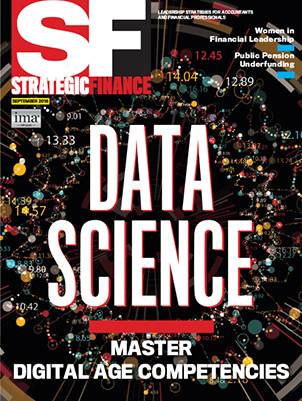When we think about change, it’s tempting to focus on the big picture, such as making monumental shifts in public policy. Yet significant change often starts at the grassroots level: the place where hearts and minds are shaped.
For the management accounting profession (and for other professions as well), that grassroots level is the education system. I was reminded of this when several senior IMA leaders and I recently attended the American Accounting Association (AAA) Annual Meeting in Washington, D.C. There we gathered with esteemed educators from around the world to learn about how best to help the students of today meet the challenges of tomorrow.
Those challenges are daunting. As consumers and professionals, we’re in the midst of a digital revolution that’s being spurred on by technologies such as artificial intelligence, machine learning, and robotic process automation, to name a few. These changes are redefining and expanding the role of accountants and making our cultivation of skills such as data analytics, data visualization, storytelling, and strategic management more important than ever before so we can increase our relevance in the face of automation.
Enter the educators, who as key influencers are tasked with readying their students to succeed in this changing environment. They must prepare their students to be future-ready for disruptions in technology and in other areas as well, such as the eroding confidence in business, Millennials’ thirst for purpose over profit, and the broader set of expectations for today’s CFO team. IMA and others have long discussed the gap between what accounting educators teach and what professional accountants in business actually do to help their organizations create and sustain value. We can’t allow this gap to widen—we must close it for our profession to remain relevant and make a difference.
To help accounting educators navigate this path and shape a more comprehensive, integrated curriculum for the future, IMA released an enhanced Management Accounting Competency Framework, which you can find at www.imanet.org/framework. This Framework provides a roadmap for accounting educators, identifying the core competencies—33 in total—that accounting and finance professionals need to be successful in the digital age. The 90-day comment period for this Framework is closing soon, so I urge all members, including our academic influencers, to give us your feedback at framework@imanet.org by September 17, 2018.
You make change happen. It begins with you!

September 2018



